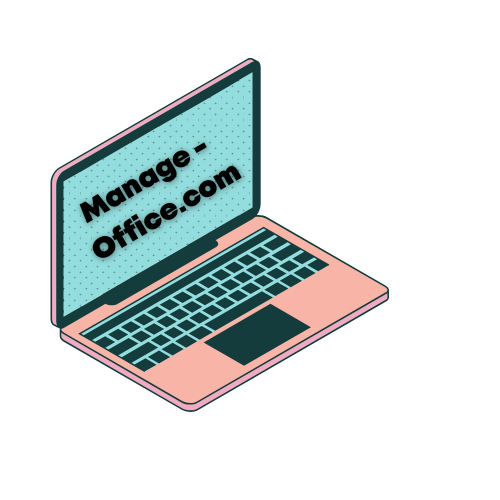Working in a fast-paced environment can be exciting, rewarding, and full of opportunities—but it can also be mentally and physically draining if you don’t manage your workload and stress levels effectively. I know this all too well. Early in my career, I found myself constantly overworked, stressed, and exhausted, pushing myself to meet deadlines and exceed expectations. It wasn’t long before I started feeling the effects of burnout—low motivation, constant fatigue, and an overwhelming sense of exhaustion.
The truth is, burnout doesn’t happen overnight. It builds up over time when we ignore our physical, mental, and emotional well-being. Fortunately, I’ve learned how to manage my workload and prioritize my well-being without sacrificing productivity. If you’re feeling overwhelmed at work, here are practical strategies to help you avoid burnout and maintain a healthy work-life balance.
1. Recognize the Signs of Burnout Early
One of the most important things I’ve learned is that burnout doesn’t just mean feeling tired. It comes with a range of symptoms, including:
❌ Constant exhaustion, even after a good night’s sleep
❌ Difficulty focusing or completing tasks efficiently
❌ Increased frustration or irritability with coworkers or tasks
❌ A sense of detachment from work or loss of motivation
❌ Physical symptoms like headaches, muscle tension, or insomnia
If you notice any of these warning signs, it’s time to take action before burnout fully sets in. Ignoring burnout only makes it worse and can affect your performance, mental health, and overall well-being.
2. Set Boundaries with Your Workload
In a high-pressure work environment, it’s easy to feel like you have to say yes to everything. I used to take on every task that came my way, thinking it would make me look like a dedicated employee. Instead, it left me feeling overwhelmed and constantly stretched too thin.
How to Set Healthy Boundaries:
✅ Learn to say no – It’s okay to decline extra work if you’re already at capacity.
✅ Manage expectations – If a task is unrealistic within a deadline, communicate early.
✅ Stick to your working hours – Avoid checking emails or completing tasks after hours unless absolutely necessary.
✅ Take breaks – Short breaks throughout the day improve focus and prevent mental fatigue.
By setting boundaries, you can protect your time and energy, allowing yourself to work efficiently without reaching burnout.
3. Prioritize Tasks & Manage Time Effectively
One of the biggest contributors to burnout is feeling like there’s never enough time to get everything done. I used to jump from one task to another, constantly feeling like I was behind. The solution? Better time management and prioritization.
Time Management Techniques to Reduce Stress:
🕒 The Eisenhower Matrix – Sort tasks into four categories: urgent/important, urgent/not important, important/not urgent, and neither. Focus on what truly matters.
🕒 Time Blocking – Set specific time slots for focused work, emails, and meetings to avoid multitasking.
🕒 The Pomodoro Technique – Work in 25-minute focused sessions with 5-minute breaks in between.
🕒 Use productivity tools – Apps like Trello, Asana, or Notion help manage and prioritize tasks.
When I started using these methods, I noticed a significant decrease in my stress levels because I felt more in control of my workload.
4. Take Care of Your Physical & Mental Health
Work isn’t the only factor that contributes to burnout—neglecting your personal well-being plays a major role too. I used to skip meals, work late into the night, and ignore my need for exercise, thinking that “I didn’t have time” for those things. But I quickly learned that burnout is inevitable when you don’t take care of yourself.
Ways to Maintain a Healthy Mind & Body:
🥗 Eat nutritious meals – Skipping meals or relying on junk food drains energy and productivity.
🏃 Move your body – A simple walk, yoga session, or gym workout can boost focus and reduce stress.
😴 Prioritize sleep – Lack of sleep makes burnout worse. Aim for 7-8 hours per night.
🧘 Practice mindfulness or meditation – Even 5 minutes of deep breathing can lower stress levels.
When I started prioritizing my health, I had more energy, improved focus, and better resilience to workplace stress.
5. Foster a Supportive Work Environment
Burnout is often worsened by a lack of support in the workplace. If you feel like you’re struggling alone, it’s time to build a network of colleagues and communicate openly.
How to Build a Support System at Work:
🤝 Talk to your manager – If your workload is too much, discuss possible solutions.
🤝 Lean on coworkers – Collaborate with your team and don’t be afraid to ask for help.
🤝 Engage in workplace activities – Building relationships with colleagues reduces stress and makes work more enjoyable.
🤝 Seek professional support – If burnout becomes overwhelming, talking to a career coach or therapist can help.
Having a strong support system at work makes it easier to navigate challenges and maintain a positive mindset.
6. Make Time for Things You Enjoy Outside of Work
One of the most effective ways I’ve avoided burnout is by ensuring that work doesn’t consume my entire life. When work becomes your only focus, stress builds up, and burnout follows.
Ways to Unplug & Recharge:
🌍 Pursue hobbies – Reading, painting, cooking, or any creative outlet helps shift your focus away from work.
📅 Schedule downtime – Just as you schedule meetings, schedule time for yourself.
🎉 Spend time with loved ones – Socializing and laughter help relieve workplace stress.
🧳 Take vacations (or even short breaks) – Even a weekend getaway or a single mental health day can help reset your energy.
The more I embraced life outside of work, the less burnout became a problem.
Final Thoughts
Burnout is real, and it can be crippling if left unchecked. However, by recognizing the warning signs, setting boundaries, managing time effectively, prioritizing health, building support systems, and making time for personal interests, you can prevent burnout and stay energized and productive in your career.
I’ve learned that taking care of myself is just as important as taking care of my work responsibilities. By implementing these strategies, I’ve been able to maintain a fulfilling career without sacrificing my well-being—and you can too!
How do you manage stress in a fast-paced work environment? Let’s discuss in the comments! 🚀✨




